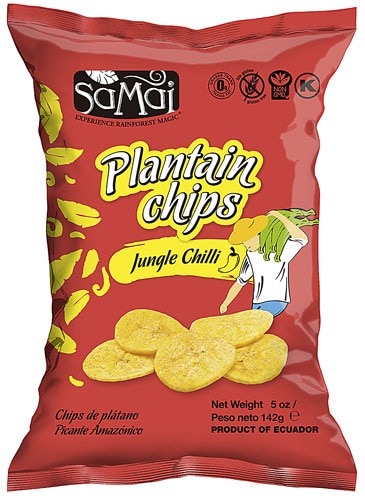There’s no doubt that we are in unique place right now. With COVID-19 ever evolving, people are being required to stay inside and give up daily privileges such as going to work, school, social gatherings and other events. With so many businesses closed, families are having to get more creative in the kitchen and cook more at home rather than eating out.
This combination of being at home more and perhaps having more food on hand than usual can lead to mindless eating, which can take a toll on health in the long term if not addressed.
But what do you do? How do you feed yourself and your family well when there’s food everywhere you look?
With a few tips and tweaks, it is possible to nourish yourself and avoid overeating even when there are stockpiles of food surrounding you.
The benefits of snacking
Many people assume that snacking equals extra calories and not much more than that. Yet, it's important to understand that when done right, snacking can be a healthful part of anyone’s diet and lifestyle. You can actually snack your way to better health!
Here are some legitimate ways snacking is good for you:
- Helps control cravings
- Provides more energy to fuel your daily activities
- Increases mental clarity and focus
- Supports better blood sugar balance
- Makes you less likely to overeat at mealtimes
- May help boost nutrient intake if healthful, balanced snacks are chosen
Caveats to snacking
On the flipside, there are many variables that can disrupt the health benefits of snacking. Because snacking has become so common, and even encouraged, in our culture, it is easy for it to get out of control. Snacking becomes a problem when it goes against natural hunger and fullness cues and becomes mindless, or based solely on routine.
In addition, our culture has taught us to believe that snacks equal processed, high-carbohydrate foods like chips, pretzels and crackers, which don't necessarily promote health. In many cases, it’s not necessarily the act of snacking itself that is the problem, but what individuals are choosing to snack on (and how much).
How to eat mindfully at snack time
There are many ways to help ensure that the act of snacking promotes health, rather than takes away from it. Surprisingly, it’s not all about the food, but about the mindset associated with it as well. Mindful eating involves both paying attention and having intention. This means taking steps to recognize when you are hungry, making intentional food choices and observing the experience of eating.
Eat based on preferences.
Tune into what your body is telling you it wants and honor that. Repeatedly ignoring cravings often leads to binges, which can backfire. If you crave something crunchy, eating yogurt will never satisfy this and you will find yourself continuing to reach for more until the craving is met. Eat what you love, and love what you eat!
Utilize a hunger-fullness scale.
This is a simple scale that ranks hunger on a level of 1-10, with 1 being completely starving, and 10 being so full you can barely move. Silently assessing where your body is at before, during and after eating can help you be more in touch with your body’s innate internal cues and prevent eating for other reasons such as boredom, habit or other external pressures.
Focus on balance.
Snacks do not and should not just equal carbohydrates. In fact, protein is known to be the most satisfying of the three macronutrients, so being sure to include enough protein in your snack can help reduce overeating. Fat also increases the enjoyment of how a food tastes and feels, so including a healthful fat source is another great way to balance out snacks and get the most nutritional density in.
Plan ahead.
Last-minute decisions rarely serve anyone well. Thinking about what you will eat in advance can help you be more likely to make healthier choices.
Stay hydrated.
Even mild dehydration can be masked as hunger, since your body feels deprived of something. If you’re not sure if you’re actually hungry, try drinking a glass of water first and then reassess. In addition, make it a point to keep a water bottle in sight to help remind you to be drinking enough fluids.
Focus on what you are eating.
Notice what the food tastes like, its smell, texture, temperature, etc. This increases the enjoyment of eating and can further help prevent mindlessness.
Choose wisely.
The foods you choose to snack on should fuel your body’s ability to meet each day’s activities optimally. If you know that sugar makes you feel sluggish, for example, avoid eating it mid-morning or mid-day. Snacks can be a great way to fit in more fruits or veggies into your diet, so consider including those and noticing how you feel afterwards.
Be aware of portion control.
It’s not a lack of self-control when you find yourself eating an entire bag of something that is right in front of you, it’s just that our brains are wired to eat until something is empty! Practicing portion control by pre-portioning snacks and keeping extras out of your reach can really help with this. Keep in mind that a snack is intended to be a mini-meal, and not the equivalent of what you had for lunch, dinner, etc.
Set up your environment.
Temptation impacts all of us, and it's not fair to ourselves if we are frequently surrounded by foods that are hard to resist. Try to avoid keeping tempting foods in the house, and if they are, work on telling yourself that you can have it whenever you want it, which may help decrease the strong desire to eat it right away. In addition, be sure to stock your kitchen with plenty of nourishing foods that will support your health, such as fresh produce, nuts, lean protein sources, etc.
Remember that snacking is not required.
Just because there is food in the house and other people around you may be snacking does not mean that this is a daily habit you must engage in. Once you tune into your hunger cues, you will be better able to identify if you have a need to eat. If the answer is no, feel free to pass it on!
Bottom line
Being at home more doesn’t have to mean a greater chance of overeating. There are many ways that snacking can benefit your health if engaged in appropriately. Snacking mindfully has to do with both the type and amount of food eaten as well as the thought processes that are involved.
Try choosing one or two suggestions from this list, and expect to start noticing a positive change in your eating habits. You can gradually build upon these healthy habits over time. Happy snacking!




